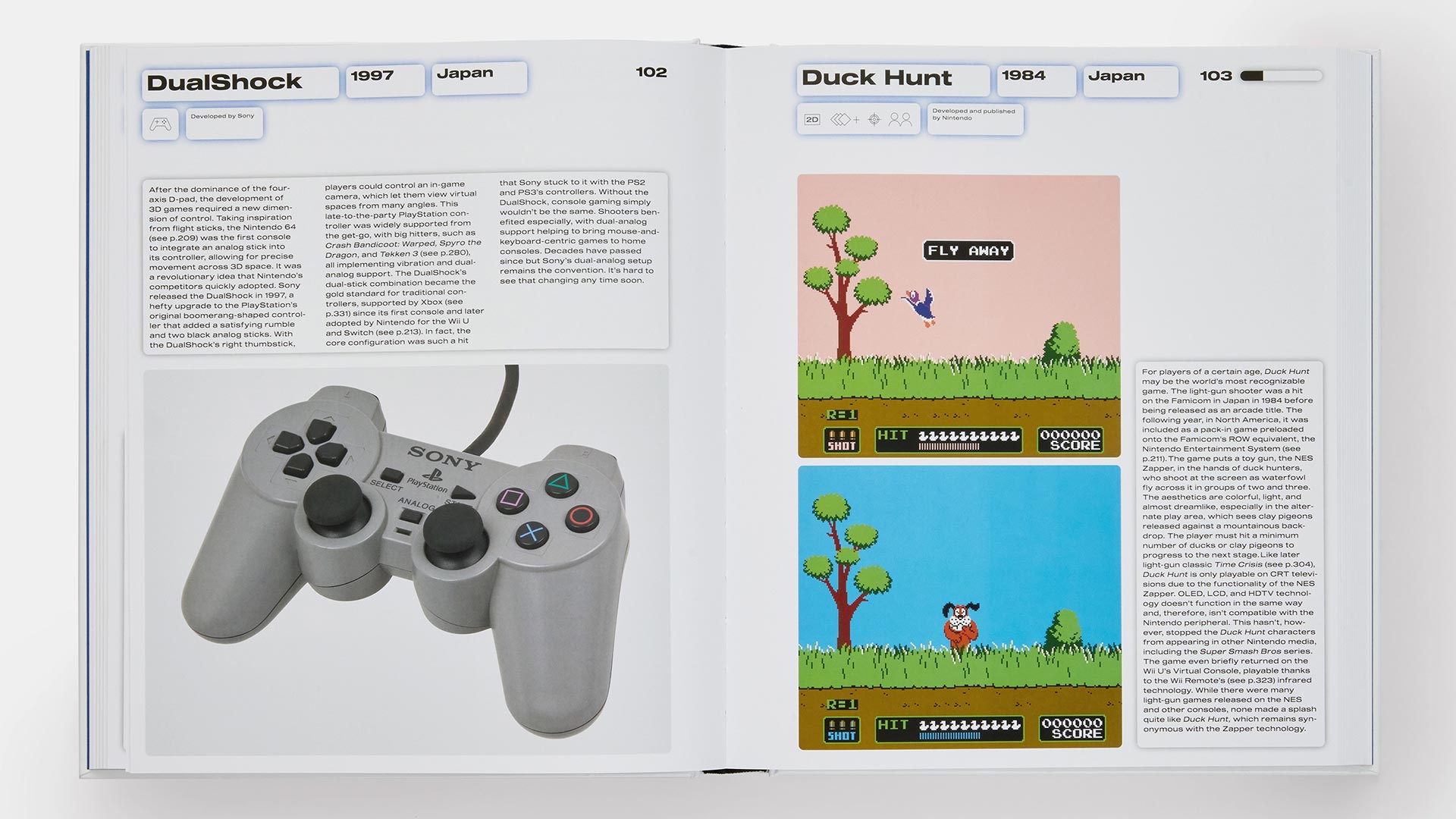I’ve often been frustrated with the general lack of awareness surrounding video games, given that it’s been a dominant entertainment medium with billions of players for many years now.
People “get” movies, TV shows and music, but video games are seemingly often thought of as some niche or nebulous — or worse, juvenile — space. Part of that is undoubtedly due to the overly secretive nature of the industry, but there’s also some level of ignorance involved.
Today is the day! ‘Game Changers: The Video Game Revolution’ is out now.
🎮 Video features iconic games by:@ustwogames@CCPGames@_Toukana@WilliamChyr
📘 Featuring original essays by @SimonParkin and @indiablock: https://t.co/4rgLG2mPQV pic.twitter.com/FHqXrb0Obb
— Phaidon 100 (@phaidonpress) September 14, 2023
That’s why I love Game Changers: The Video Game Revolution, a new video game-focused anthology from publisher Phaidon. It takes a nearly $200 billion industry that many people somehow still seem to view as impregnable and makes it approachable for all audiences. Thanks to a panel of industry experts, Game Changers compiles over 300 entries on some of the most important and beloved games, hardware and companies since the medium first began in the ’50s. Each well-written entry provides a succinct but meaningful context for the game itself, as well as its history and wider impact.
Overall, it’s a well-rounded collection that includes everything from 1952’s OXO tic-tac-toe game and 1972’s iconic Pong to the 2021 zen puzzler Unpacking and 2022’s Southern Gothic point-and-click adventure title Norco. In this way, Game Changers is appropriate for both veteran gamers and more casual audiences, helping chart a course through the evolution of the medium. Even someone who knows little about games can appreciate looking at one of the decades-old games and comparing it to modern classics like The Last of Us, Bloodborne and Disco Elysium.
 And while Game Changers is presented in alphabetical format, there’s a helpful chronology in the book’s rear, as well as a glossary for terms like “cutscene” (the non-playable sequences in between playable sections that advance the story) and “Metroidvania” (a subgenre in which players backtrack to use new items to unlock previously inaccessible areas). There are also little symbols, as outlined in a legend, that break down games by platform (console, PC, etc), genre (action, role-playing, etc), the number of supported players and technology (2D/3D/VR), as well as mentions of the developer and the country in which it’s located.
And while Game Changers is presented in alphabetical format, there’s a helpful chronology in the book’s rear, as well as a glossary for terms like “cutscene” (the non-playable sequences in between playable sections that advance the story) and “Metroidvania” (a subgenre in which players backtrack to use new items to unlock previously inaccessible areas). There are also little symbols, as outlined in a legend, that break down games by platform (console, PC, etc), genre (action, role-playing, etc), the number of supported players and technology (2D/3D/VR), as well as mentions of the developer and the country in which it’s located.
I also appreciated that the panel included hardware and companies to paint a more complete picture of the industry. This means that you’ll have sections on developers/publishers Nintendo (Mario, Zelda) and Konami (Castlevania, Metal Gear) and devices like Sony’s PlayStation and Meta’s more recent Oculus Rift VR headset (now known as Meta Quest). There are little biographies on some of the industry’s most important figures, from big names like Shigeru Miyamoto (Mario) and Hideo Kojima (Metal Gear) to lesser-known figures like Dona Bailey (Centipede) and Sir Clive Sinclair (ZX Spectrum).

I do have a few nitpicks, though. For one, the selection of images for some pages — those focused on franchises as a whole rather than specific games — can be a bit questionable. For instance, the page on Square Enix’s Final Fantasy RPG games — my favourite gaming series — features a still of 1987’s OG Final Fantasy (logical) and another of Final Fantasy VII Remake‘s “Intermission” add-on (an odd pick to represent VII, the franchise’s most beloved game). Similarly, the bit about PlayStation’s God of War action franchise includes two images from the most recent entries, 2018’s reboot, and its 2022 Ragnarök sequel, but nothing from the PS2 and PS3 titles that led up to them.
“If you have any interest in games, you should definitely check out Game Changers: The Video Game Revolution.”
Of course, there will also be some inevitable omissions when you’re trying to distill 70-odd years of software, hardware and game makers into 300 selections. In that respect, I can’t take too much issue, although I’d be lying if I wasn’t disappointed to see absolutely nothing from Canada’s BioWare. The Edmonton-based developer has been extremely influential in the RPG (role-playing game) space thanks to its work on the likes of Star Wars: Knights of the Old Republic, Mass Effect and Dragon Age. Hell, this year’s highest-rated non-Zelda game, Larian’s D&D RPG Baldur’s Gate 3, owes itself to the two Baldur’s Gate titles made by BioWare Edmonton.
Those are smaller issues, though, especially when Game Changers is as comprehensive and inviting as it is. The beefy 352-page tome is just full of fascinating insight into the history of games from all around the world, and essays from journalist Simon Parkin (who hosts one of my favourite podcasts, the delightful My Perfect Console) and Disengo magazine’s deputy editor India Block only sweeten the deal. If you have any interest in games, you should definitely check out Game Changers: The Video Game Revolution.
You can order the book for $74.95 from Phaidon directly, booksellers like Indigo and Amazon, and smaller independent shops.
Image credit: Phaidon
>>> Read full article>>>
Copyright for syndicated content belongs to the linked Source : MobileSyrup – https://mobilesyrup.com/2023/09/16/phadion-game-changers-the-video-game-revolution-book-review/?utm_source=rss&utm_medium=rss&utm_campaign=phadion-game-changers-the-video-game-revolution-book-review










